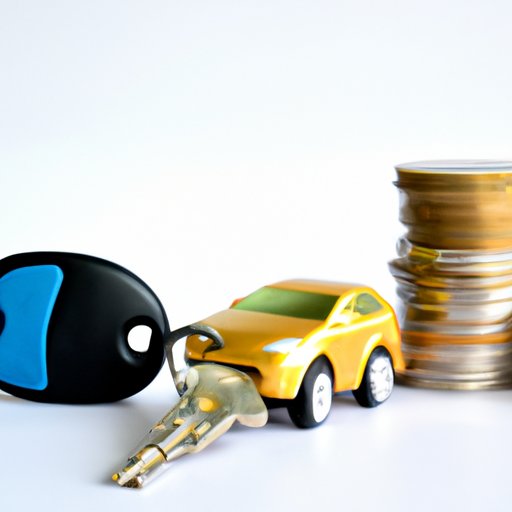Introduction
Leasing or buying a car is a tricky decision that depends on several factors. The money you spend on your car is a significant part of your budget, and choosing the wrong option can have significant financial consequences. This article aims to help you decide between leasing and buying a car by breaking down their pros and cons in terms of finance, lifestyle, and emotions.
Lease vs Buy: Which is the Better Option for Your Wallet?
The most significant difference between leasing and buying is the initial and long-term costs. When you lease a car, you pay for its depreciation, which means you only pay for the portion of the car’s value that you use. While this makes leasing cheaper in the short term, it can add up in the long term, as you have no asset to sell or trade-in when the lease expires.
On the other hand, when you buy a car, you pay the full sticker price, which is higher than the equivalent lease payments. However, the car holds some resale value, which can offset its costs. Moreover, you can spread out your loan payments over several years rather than having to pay a large sum upfront or over a shorter leasing period.
The Pros and Cons of Leasing vs Buying a Car
Leasing a car can provide some advantages, such as lower monthly payments, more flexibility, and fewer maintenance costs. You can also enjoy driving a new car every few years and avoid the hassle of selling or trading-in the vehicle. However, leasing limits your driving mileage, customization options, and overall ownership experience. Furthermore, you need to maintain the car to a high standard and pay for any excessive wear and tear upon returning the vehicle.
If you buy a car, you enjoy full ownership, customization freedom, and no mileage caps. You can also modify or sell the car as you wish and have more predictable long-term costs. However, owning a car is costlier in the short term, requiring you to pay higher down payments, monthly loans, and any maintenance and repair costs.
The Hidden Costs of Leasing a Car: Is it Really Worth It?
Leasing a car comes with several hidden costs that can add up quickly and make it not worth the price. For example, most leases charge fees for exceeding allotted mileage, returning damaged or dirty cars, or making excessive wear and tear on the vehicle. Additionally, lessees might need to purchase gap insurance and pay extra for any modifications or extra features they want. These costs, combined with the lack of equity and trade-in value, reduces leasing’s overall value to some consumers.
Leasing vs Buying: Making the Right Decision for Your Lifestyle
The decision to lease or buy depends significantly on your living situation, driving habits, and personal preferences. For example, those who have long commutes or need a car for family use may prefer to buy to reduce long-term costs and have more ownership flexibility. In contrast, urbanites or individuals looking for a high-end vehicle may be more inclined to lease to keep up with the latest trends and models without having to commit to long-term ownership. Budget also plays a significant role, as lease payments are typically structered to offer payment relief for relatively short amounts of time, while loan payments are generally higher but provide full ownership over time.
Lease vs Buy: Debunking the Myths and Misconceptions
There are several common myths surrounding the decision to lease or buy a car, such as leasing being the cheaper or easier option, or buying being for only those who can afford it. However, these myths are rooted in partial truths and ignore the complexities of each option. For example, leasing can be cheaper in some instances, but hidden costs add up over time. Similarly, buying can require more upfront costs, but the investment can pay off over time. It is always important to look at the details of each option before making an informed decision.
The Emotional Side of Leasing vs Buying a Car: What You Need to Consider
The decision to lease or buy also has an emotional component. Leasing can provide a sense of convenience, flexibility, and always having the latest and greatest model while avoiding being tied down to one car for a long time. It is also more “temporary,” making it ideal for individuals who may not want a long-lasting commitment. On the other hand, buying can bring pride, security, stability and long-term ownership of a valuable asset. It allows for the freedom of customizing the vehicle to suit the owner’s personality and lifestyle. When deciding, it is important to balance the emotional benefits against the practical and financial factors.
Conclusion
Choosing between leasing vs buying a car can be overwhelming, but understanding the financial, lifestyle, and emotional implications can help you make an informed decision. Careful evaluation of your situation, driving habits, and budget can help you determine the best option for you and your family. Remember, the decision is ultimately up to you and should always reflect your lifestyle, budget, and individual needs.
